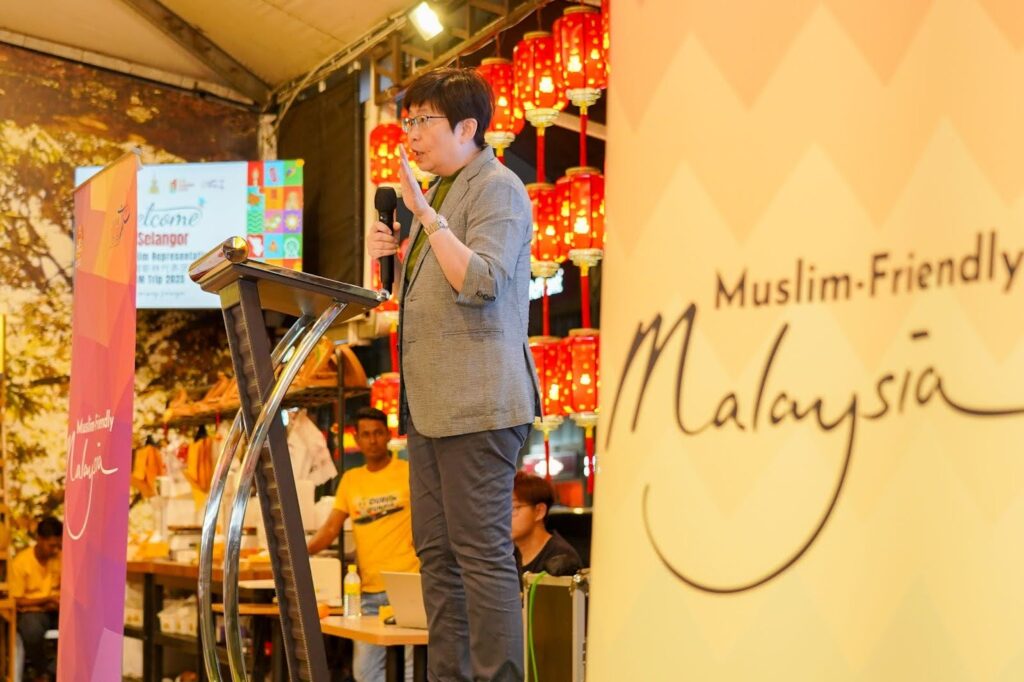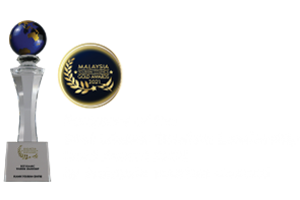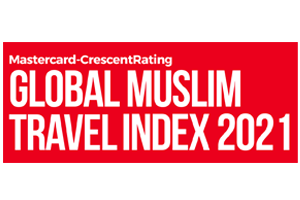MALAYSIA IS rapidly becoming a sought-after destination for Chinese Muslim tourists, many of whom are eager to visit for cultural exchange. Sharing the same religion as many Malaysians, these tourists find added comfort, which deepens their curiosity and transforms their visits into a more immersive exploration of food, culture, and hospitality.
MICA shares insights on the growing appeal of Malaysia for Chinese Muslim travellers and the importance of year-round promotion:
01) Cultural And Religious Comfort
”CHINESE Muslim travellers truly enjoy Malaysia. Earlier this year, we hosted a group of Imams from China, and the feedback was overwhelmingly positive. Many of the Imams were fascinated by the unique architectural styles of our mosques. For instance, the mosque in Putrajaya is pink, the one in Malacca is green, and the mosque in Shah Alam is blue. They were impressed by these distinctive designs,” said Malaysia Inbound Chinese Association (MICA) President Dato’ Dr Angie Ng.
“Chinese Muslim travellers also appreciate Malaysia’s multicultural and multiracial society. The fact that many Malaysians speak Mandarin and that there are a growing number of Chinese-speaking Muslims here adds to their comfort. Even among non Muslims, there is a deep understanding and respect for Muslim culture, as it is an integral part of growing up in Malaysia.
“Previously, we hadn’t placed much focus on promoting Malaysia to this specific market segment. However, after bringing in these groups,including the Imams, we’ve seen encouraging results, highlighting the potential to further develop this niche market.”
Looking ahead, she mentioned that MICA is planning a roadshow in March 2025. The roadshow will include visits to Qingdao, Kunming, and Chenzhou, as well as other cities and provinces with a strong Muslim presence. These roadshows are part of their efforts to strengthen ties and promote Malaysia as a key destination for Chinese Muslim travellers.
02) Tailored Tourism Experiences
CONTRARY to assumptions, Muslim tourists visiting Malaysia are ordinary tourists, not on religious pilgrimages like Hajj or Umrah. While prayer facilities are essential, this segment of the Muslim travel market primarily seeks diverse experiences, such as exploring islands, beaches, and different cultures.
“Chinese Muslim tourists, like any other travellers, enjoy sun, sand, and beaches. Malaysia, as a Muslim-friendly country, offers excellent facilities that cater specifically to their needs. They particularly love the islands, where we’ve even tailored experiences such as water sports for their enjoyment
“They also enjoy sampling Malaysia’s wide variety of halal-certified food, including hawker fare and even unique offerings at Mamak stalls, like roti tissue, which is often a first-time experience for many.
“Shopping malls are also a popular draw. Additionally, the Islamic Tourism Centre (ITC) has played a significant role by providing programmes like the Muslim-Friendly Tourist Guide (MFTG) to train and certify tourist guides, especially Mandarin-speaking ones, to serve Chinese Muslim visitors better.”
03) Year-Round Promotion Strategy
WHEN asked about MICA’s plans for the upcoming Chinese New Year, Angie explained that MICA does not focus solely on this period as a promotional window. Instead, the association adopts a consistent and sustainable approach, promoting travel year-round, particularly during the off-peak seasons. Seasonal campaigns tend to be less effective due to limited visitor numbers, whereas promoting during the low season appeals to a broader audience, including those who prefer to travel when prices are more affordable and crowds are smaller.
“Peak travel periods, such as Golden Week in October, Chinese New Year, and other festival seasons, are often more expensive and primarily appeal to families with children. However, Chinese tourists generally prefer travelling during low seasons, like July and August, which coincide with school holidays in China. “
To maximise appeal, MICA focuses on promoting Malaysia as a year-round destination, leveraging the affordability and availability of experiences during these quieter periods while ensuring Muslim-friendly services remain accessible and visible.






